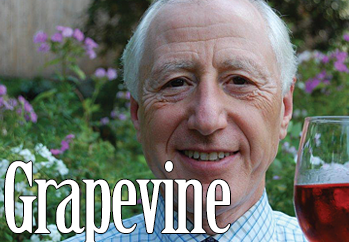The Evolution of the Disparate American and Mediterranean Diets
Opinion Advocates for ideas and draws conclusions based on the author/producer’s interpretation of facts and data.
 This week I’ve reprised a column from several years ago. Feel free to reach out with your comments,
This week I’ve reprised a column from several years ago. Feel free to reach out with your comments,
From the Mediterranean diet to the American Fast Food Nation dietary habits, culinary traditions have evolved, more over the past 50 years than in the previous millennia.
Historically, the American diet, a reflection of our entrepreneurial spirit and ambition, has focused on immediacy and efficiency, unlike the laid-back Mediterranean Diet and its Asian equivalent, which focus on the appreciation of food and the intrinsic, interwoven role of wine and other beverages.
Yet in this era of social media information overload, the two dietary patterns are beginning to cross over, for better and for worse. Allow me to contextualize these dietary changes into a historical perspective. An anthropological review provides a roadmap to the evolution of these once divergent diets.
The human body has evolved very little over the last 40,000 years. It was “designed” for a specific diet, one that was reliant on readily available products and ingredients.
Think about the diet of early Homo sapiens: berries, root vegetables (each a complex, or good, carbohydrate), nuts, fermented juices, wild game and a mastodon steak once or twice a year. This diet prevailed for millennia but then, as the population grew, along came cities and the need to feed the urban masses. Industrialized agriculture, principally processed grains and products with pumped up sugar (simple, or bad, carbohydrates), became a primary source for food.
As the Industrial Age gradually infiltrated our lives, so too did the commercial food industry, notably in the United States. Scientific applications and additives were introduced to preserve and extend the “shelf life” of raw food. Not coincidentally, commencing in the mid-20th century the incidence of cancer, heart disease and obesity began to rise to near epidemic levels. Through all of these changes, wine remained a healthy, unadulterated staple.
Until recently, Americans were uniquely impacted by the rise in life-threatening diseases. The USDA didn’t have to look far for a solution to address these issues. Mediterranean-rim countries had resisted that to which the Americans succumbed. Their diets more closely resemble a construct for which our physiology was designed: a balance of unadulterated, minimally processed proteins, fats and carbohydrates, lubricated by fermented juice.
However, there is a strange irony in this tale. Americans, introduced 20 years ago to the Mediterranean diet, dubbed the “French Paradox,” have begun to slowly change to a more Mediterranean-focused diet. More recently, restaurant and fast-food menu choices have gone one step further with now-familiar dietary abbreviations such as GF, DF, VE and VG.
The rest of the world, however, has begun to succumb to the ubiquitous American diet. As American capitalism has expanded across the globe, there has been a rise in overly processed foods, coupled with an increase in the consumption of fatty foods (hamburgers and super-sized French fries) and sugary soft drinks.
Historically the incidence of heart disease in Japan and France was minor compared to the United States. This all changed as American fast-food restaurants expanded to these countries over the last half-century. Today, heart disease has become a major concern in these countries as well as other “globalized” nations that have embraced the American diet.
There is one constant in the evolution of early man’s diet. Wine has been a beverage of choice for millennia, growing in popularity to this day. This “superfood” is considered an elixir that ameliorates modern day ailments.
Even the USDA agrees on the benefits of wine: “Moderate alcohol consumption also is associated with reduced risk of all-cause mortality among middle-aged and older adults and may help to keep cognitive function intact with age.” A caveat here: Several recent medical studies have questioned these benefits. Watch for a future column focusing on this.
Sound diets are on the rise in the United States. We’re moving in the right direction, but the road is a long and arduous one to synchronize our lifestyle with our physiology. My advice: Rather than inhaling your food, take a deep breath, exhale and smell the roses – and the rosemary – in your next meal.
Nick Antonaccio is a 45-year Pleasantville resident. For over 25 years, he has conducted wine tastings and lectures. Nick is a member and program director of the Wine Media Guild of wine journalists. He also offers personalized wine tastings. Nick’s credo: continuous experimenting results in instinctive behavior. You can reach him at nantonaccio@theexaminernews.com.
